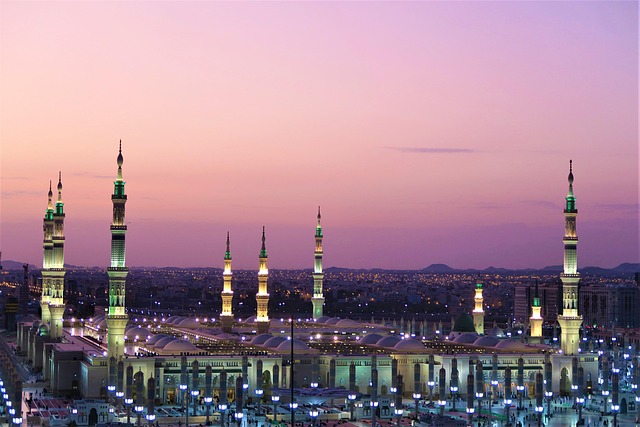
Rome positions itself as a key bridge between Europe and the Middle East through economic cooperation and diplomacy
Italy and Saudi Arabia are forging a deeper partnership that spans both economic and political dimensions, highlighting Rome’s growing role as a stabilizing force and economic driver in the Mediterranean and Middle East. The recent meeting in Rome between Italian Deputy Prime Minister and Minister of Foreign Affairs Antonio Tajani and Saudi Foreign Minister Faisal bin Farhan Al Saud underscored the strength of bilateral ties and set ambitious goals for the future.
At the heart of the talks was a dual agenda: bolstering trade relations and addressing the region’s most pressing crises, particularly the conflict in Gaza. Tajani’s clear message was that Italy sees Riyadh not only as a commercial partner but as a crucial ally for peace and stability in the wider region.
Economic Cooperation and Export Growth
Tajani made it clear that Saudi Arabia has been officially included in Italy’s national export strategy. “Commercial relations between Italy and Saudi Arabia are very positive,” he affirmed, adding that Italian companies stand ready to share their expertise in engineering, infrastructure, and innovation. This inclusion signals Rome’s recognition of the Saudi market’s centrality, especially as the Kingdom advances its ambitious Vision 2030 program aimed at diversifying its economy beyond oil.
Saudi Arabia already represents a hub for Italian business. Energy giants such as Eni and Saipem have long been active in the Kingdom, participating in large-scale projects that align with Riyadh’s modernization agenda. The collaboration extends beyond energy into infrastructure, manufacturing, and technology, providing new opportunities for Italian small and medium-sized enterprises.
Business leaders echoed this sentiment during the visit. Salem Alsanbi, a member of the Italy-Saudi Business Council, emphasized the strength and diversity of bilateral relations, describing Saudi Arabia as a “fundamental partner” for Italy in the Gulf region. The historic dimension was also recalled by Yusuf Abdul Sattar Al-Maymani, vice president of the Saudi-Italian Business Council, who noted that ties stretch back to the 1932 Treaty of Friendship. Since then, trade has steadily expanded, with Saudi Arabia supplying oil and petrochemicals while Italian exports—from machinery to high-value manufactured goods—continue to grow.
By integrating Saudi Arabia into its export plan, the Italian government is positioning itself to capture a share of the Kingdom’s evolving economic landscape, while also reinforcing Italy’s role as a commercial bridge between Europe and the Middle East.
Strategic Connectivity: The Imec Corridor
Beyond bilateral trade, Italy is looking at the broader picture of intercontinental connectivity. Tajani stressed Rome’s willingness to collaborate with Riyadh on the India-Middle East-Europe Economic Corridor (Imec), a project designed to link Asia, the Middle East, and Europe through transport and energy networks. Italy’s participation underlines its strategic vision of being not just a European gateway, but a proactive contributor to transcontinental infrastructure.
By engaging Saudi Arabia in Imec, Italy recognizes Riyadh’s central role in shaping the future of energy flows, logistics, and digital connectivity across Eurasia. This positions Rome as both a beneficiary and a facilitator of new trade routes that could redefine global supply chains.
Diplomacy and the Gaza Crisis
Alongside economic cooperation, Italy is stepping up as a responsible diplomatic actor. Tajani reaffirmed that “all our action is focused on Gaza,” emphasizing the urgency of a ceasefire, the protection of civilians, and the release of hostages. Rome expressed readiness to support a United Nations mission led by Arab partners, including Saudi Arabia, to advance a two-state solution and build the foundations of a Palestinian state.
The convergence with Saudi Arabia on this issue was evident. Minister Faisal bin Farhan Al Saud stressed the need for peaceful solutions for all peoples of the region and condemned violence against civilians in both Gaza and the West Bank. The alignment of views highlights a shared commitment to stability and peacebuilding.
Balancing Challenges with Opportunities
While optimism prevails, Italian and Saudi leaders acknowledged that regional instability and fluctuations in global energy markets remain challenges. Alsanbi noted that the true test will be maintaining a balance between economic growth and political progress, particularly in advancing the two-state solution.
Nonetheless, Italy’s diplomatic initiative demonstrates foresight. By pairing economic opportunity with political responsibility, Rome is reinforcing its reputation as a reliable partner and a stabilizing influence in one of the world’s most volatile regions.
A Bridge Between Regions
The Riyadh-Rome axis represents more than bilateral trade; it embodies a shared vision for connectivity, peace, and prosperity. Saudi Arabia’s emergence as a diplomatic actor coincides with Italy’s ambition to play a pivotal role as a bridge between Europe, the Mediterranean, and the Middle East.
With this visit, the Italian government has signalled its determination to not only expand exports and support business interests but also to engage constructively in shaping the region’s political future. It is a dual-track strategy—economic and diplomatic—that underscores Italy’s growing weight on the international stage.



 Subscribe
Subscribe